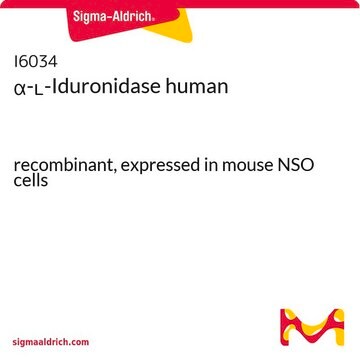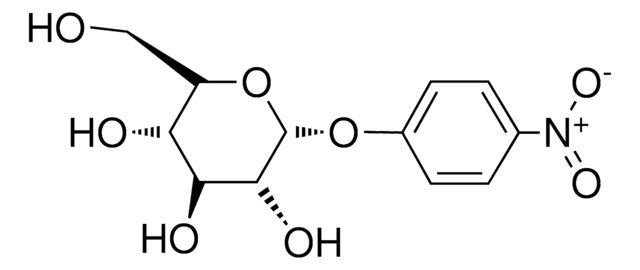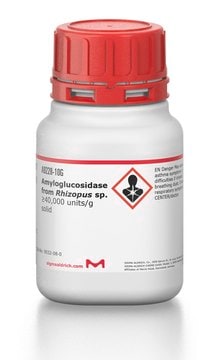G3651
α-Glucosidase from Bacillus stearothermophilus
lyophilized powder, ≥50 units/mg protein
Synonyme(s) :
α-D-Glucoside glucohydrolase, Maltase
About This Item
Produits recommandés
Forme
lyophilized powder
Niveau de qualité
Activité spécifique
≥50 units/mg protein
Caractéristiques du produit alternatif plus écologique
Waste Prevention
Design for Energy Efficiency
Learn more about the Principles of Green Chemistry.
sustainability
Greener Alternative Product
Activité étrangère
β-Glucosidase, α−galactosidase and β−galactosidase ≤0.1%
Autre catégorie plus écologique
Maladie(s) pertinente(s)
diabetes (management of non-insulin-dependent diabetes mellitus)
Température de stockage
2-8°C
Description générale
Application
Actions biochimiques/physiologiques
Définition de l'unité
Forme physique
Remarque sur l'analyse
Autres remarques
Inhibiteur
Substrat
Code de la classe de stockage
11 - Combustible Solids
Classe de danger pour l'eau (WGK)
WGK 3
Point d'éclair (°F)
Not applicable
Point d'éclair (°C)
Not applicable
Équipement de protection individuelle
Eyeshields, Gloves, type N95 (US)
Certificats d'analyse (COA)
Recherchez un Certificats d'analyse (COA) en saisissant le numéro de lot du produit. Les numéros de lot figurent sur l'étiquette du produit après les mots "Lot" ou "Batch".
Déjà en possession de ce produit ?
Retrouvez la documentation relative aux produits que vous avez récemment achetés dans la Bibliothèque de documents.
Les clients ont également consulté
Notre équipe de scientifiques dispose d'une expérience dans tous les secteurs de la recherche, notamment en sciences de la vie, science des matériaux, synthèse chimique, chromatographie, analyse et dans de nombreux autres domaines..
Contacter notre Service technique













